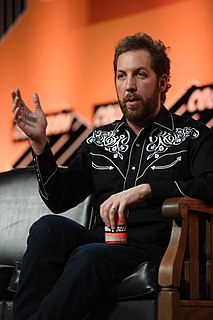A Quote by Anthony Fauci
There cannot be any impediment to science that will ultimately be good to the general public.
Quote Topics
Related Quotes
First, individual rights cannot be sacrificed for the sake of the general good, and second, the principles of justice that specify these rights cannot be premised on any particular vision of the good life. What justifies the rights is not that they maximize the general welfare or otherwise promote the good, but rather that they comprise a fair framework within which individuals and groups can choose their own values and ends, consistent with a similar liberty for others.
In general, I'm in support of promoting art and science in public schools. I think music and science are probably the most important factors for the human brain developing. Even more so than any other fields, because music covers mathematics, cognitive reasoning, motor skills, coordination, like, it's kind of everything.
Public virtue cannot exist in a nation without private, and public virtue is the only foundation of republics. There must be a positive passion for the public good, the public interest, honour, power and glory, established in the minds of the people, or there can be no republican government, nor any real liberty: and this public passion must be superiour to all private passions.
The surgeon general is responsible for sharing scientifically-based information with the public so that they can improve their health. But I will say personally that my goal as surgeon general is to help build a culture of prevention in America so that we are a nation that is as good at preventing illness as we are at treating it.
I have one of the self-driving Teslas; it drives itself periodically. It's a marvel of science, but it's still frightening. I think we've got a while before regulators and the general public wrap their heads around the path that will lead to the ubiquity of driverless cars. There's no doubt Uber will be a leader in that space.





































